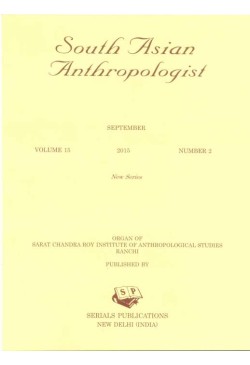Pranab Kumar Ganguly was a leading bio-cultural anthropologist of India who passed away peacefully on February15, 2014 at his Kolkata residence. Apart from his contributions in the typical subfields of Biological/Physical Anthropology, like anthropometry, dermatoglyphics and dental anthropology, Ganguly made important contributions in social demography, ethno-history, material culture, language, religion and political system. Moreover, he also contributed on some policy issues of the Onges of Little Andaman. Ganguly received his M.Sc., Ph.D and D.Sc. degrees from the University of Calcutta in 1951, 1966 and 1973 respectively. He joined the Anthropological Survey of India as an Anthropologist in 1969 and became its Deputy Director and subsequently founded two new Anthropology Departments in India at Manipur and Vidyasagar Universities as founder Professor. He retired from Vidyasagar University, West Bengal in 1993; the extension of his service up to five year was discontinued by the then Vidyasagar University executive council for reasons best known to them. Ganguly was the elected President of the Anthropology and Archeology Section of the Indian Science Congress during 1976–77. Ganguly received four prestigious medals namely, the Bertillon Medal of France (1973), Sir Asutosh Mookerjee Gold medal (1975), Bengal Immunity Research Prize and Gold Medal (1975) as well as the Griffith Memorial Prize (1975) for his research on a variety of topics in Anthropology. In this paper I have made an attempt to portray Ganguly not only as a complete anthropologist but also as a human being covering his notable contributions, which included his attention to the application of anthropology for human well being as well as an ethnographic travel account of Poland.
We must learn from the past experience; hindsight, I believe, is much easier than foresight.
------- Pranab Ganguly (1977).
KEYWORDS: Pranab Ganguly. Indian Anthropology. Bio-cultural Anthropology. Human Adaptation. Andaman and Nicobar Islands. Anthropological Survey of India. Vidyasagar University.
